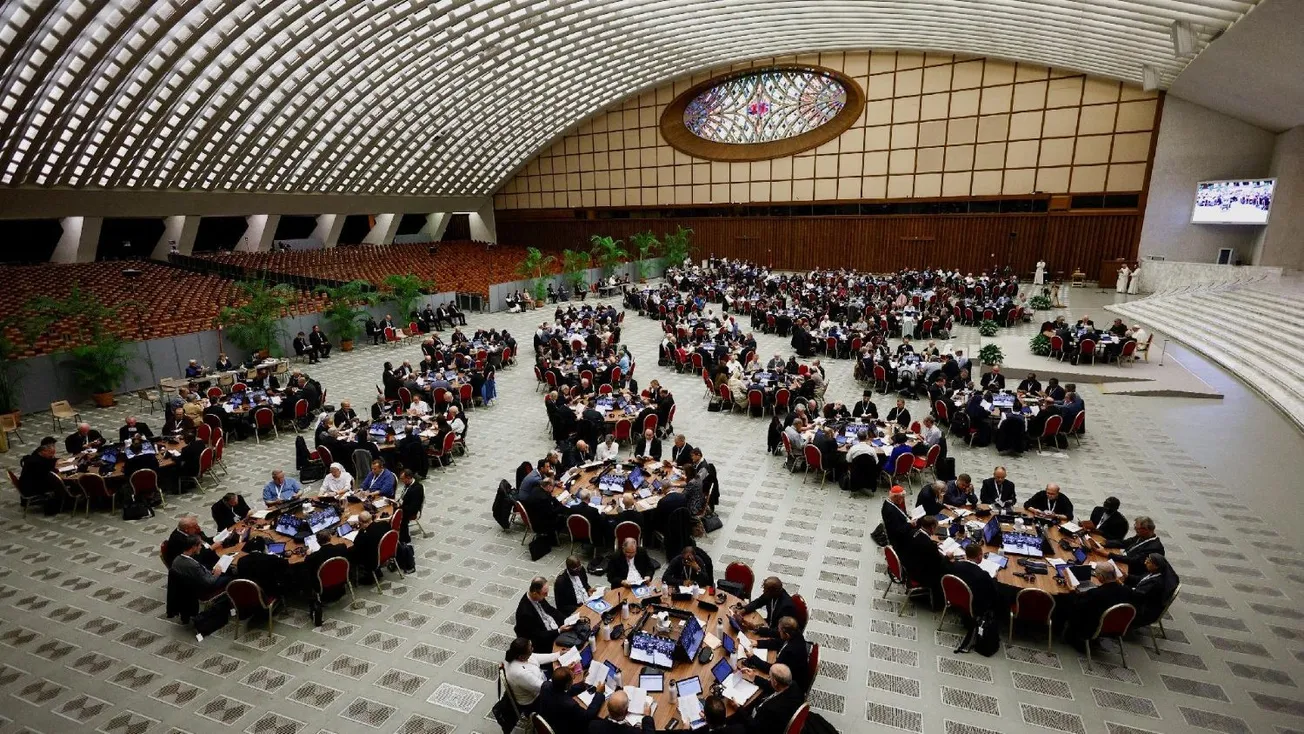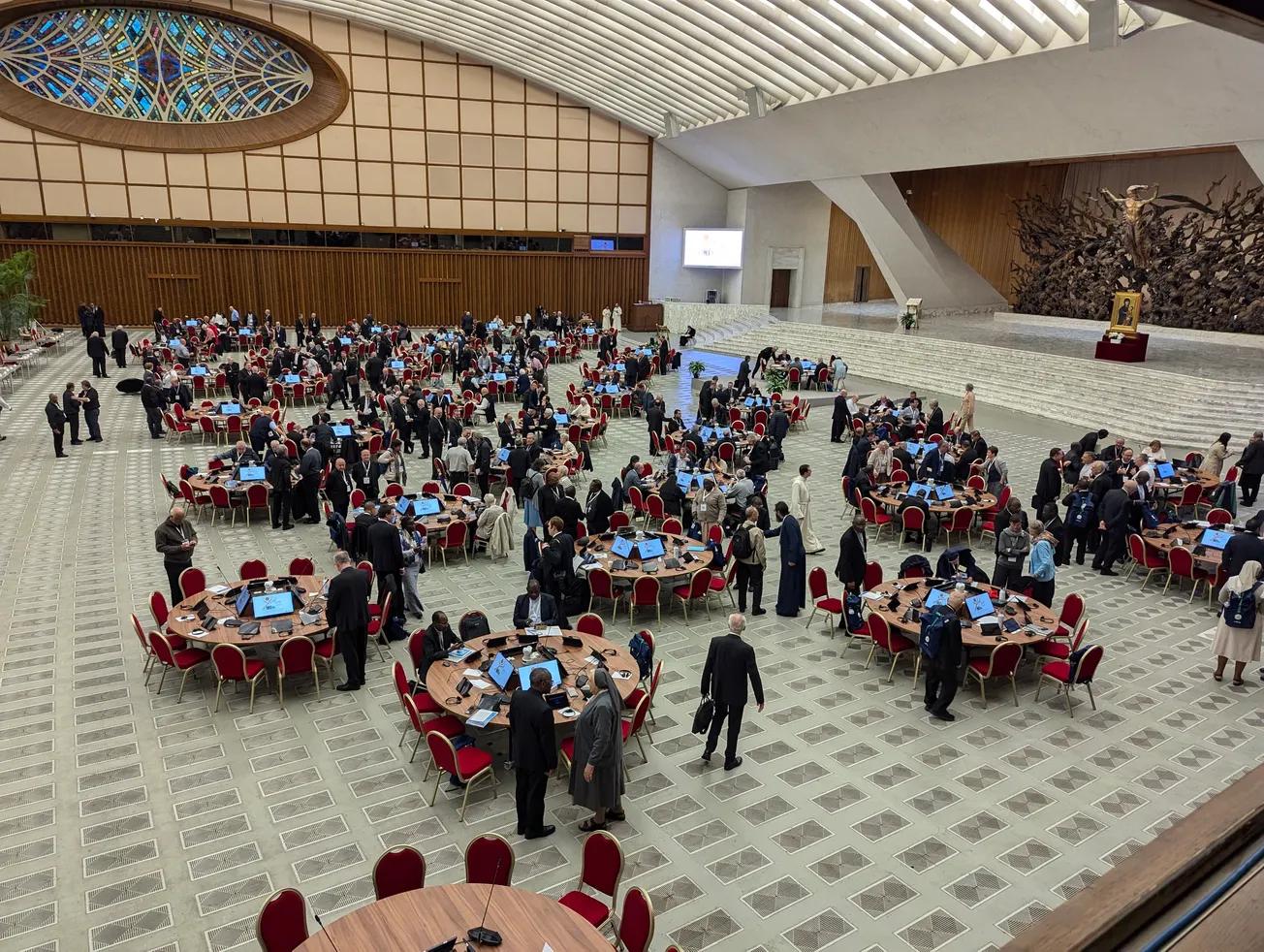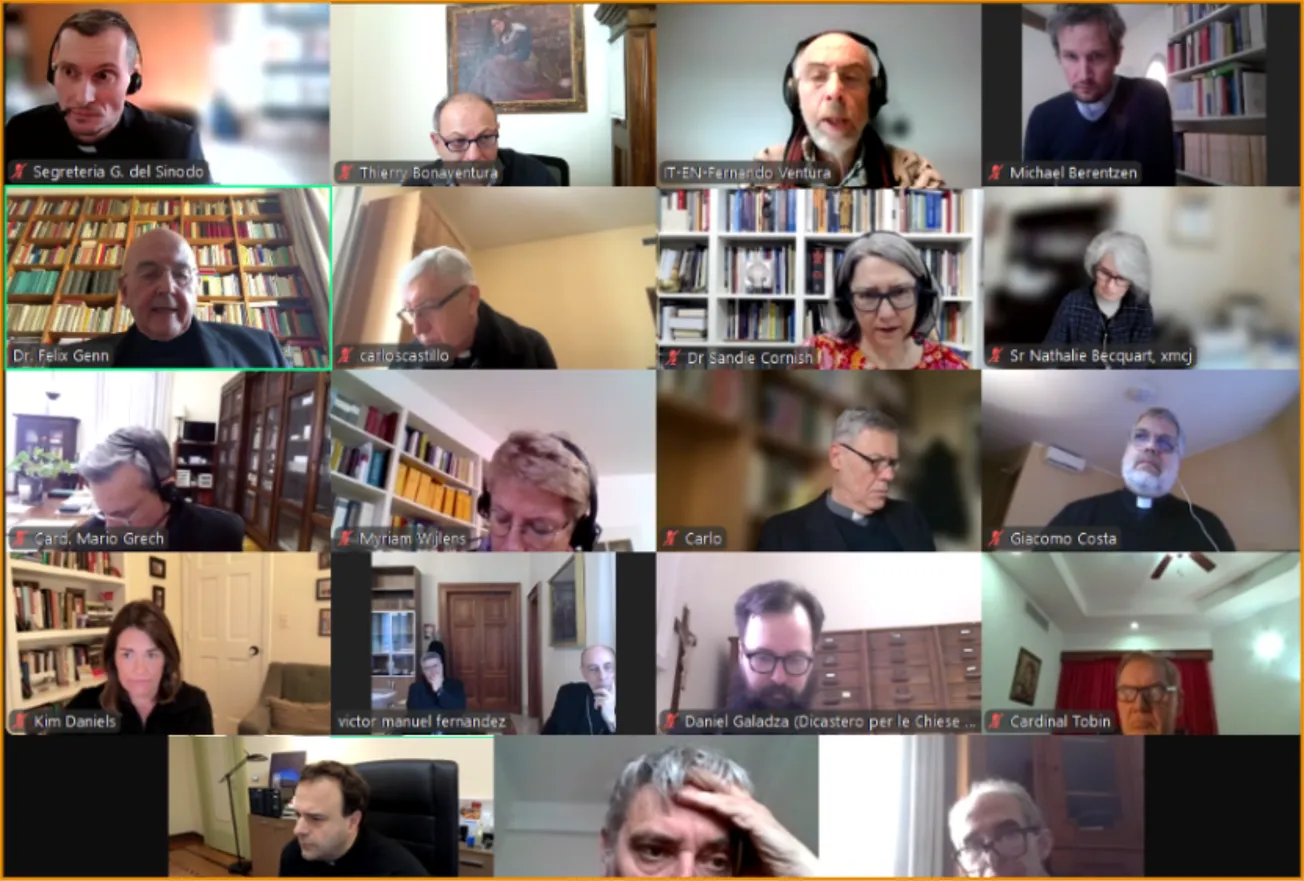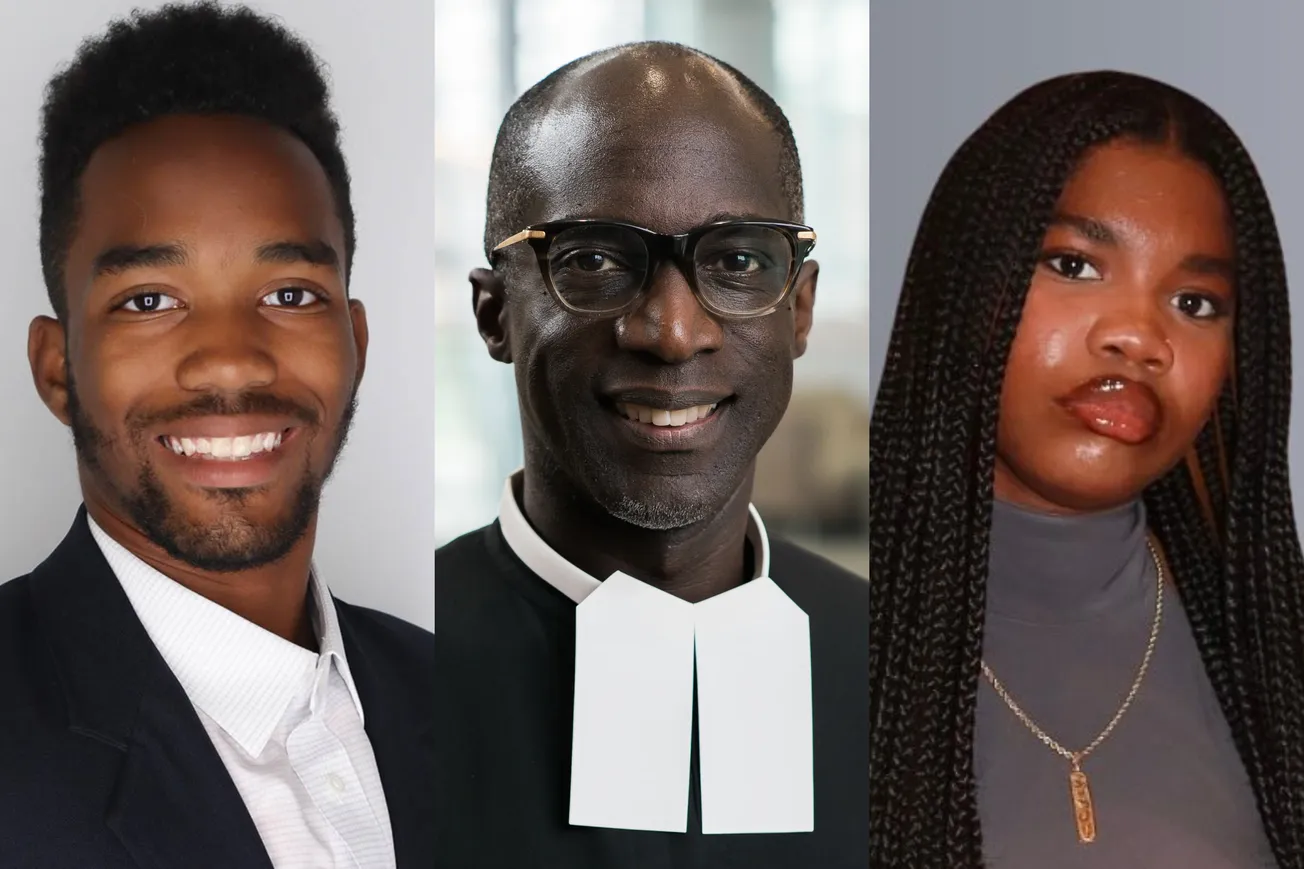Delegates to the Synod on Synodality will soon convene for their second and final in-person session in Rome, beginning this weekend with a retreat in Vatican City. The meetings thereafter will run from Oct. 2-26, including a number of new aspects compared to the fall 2023 gathering.
Their discussions, held under the listening-first principle of “Conversations in the Spirit,” will again feature more than 360 voting delegates, including women and laypeople for the first time ever. They will cover topics laid out in a second “Instrumentum Laboris” (working document) released over the summer, formed from discussions and votes at last year’s session.
New this year is a public penitential vigil that will conclude the pre-synod retreat, taking place Tuesday, Oct. 1, at St. Peter’s Basilica with Pope Francis. Survivors of abuse, war, and the global migration crisis will present testimonies, alongside prayers concerning the environment, women, doctrine, poverty, and synodality itself.
“On the eve of such a solemn Church event as the Synod, some of the sins that cause most pain and shame will be called by name, invoking God's mercy,” said Cardinal Mario Grech, secretary general of the Synod of Bishops, during a press conference on Sept. 16.
“It will not be a matter of denouncing the sin of others, but of recognizing oneself as part of those who, by action or at least omission, become the cause of the suffering endured by the innocent and defenceless.”
Now Live
— Synod.va (@Synod_va) September 16, 2024
Press Conference presenting the work of the Second Session of the XVI Ordinary General Assembly of the Synodhttps://t.co/uo3arC8uQB
Pope Francis will also deliver an address at the event, the first of his several expected interventions during the three-and-a-half weeks of discussions. The synod is considered to be one of the major achievements of his 11-year pontificate, more than a quarter of which has intersected with the event.
Beginning in 2021, Catholic dioceses, schools, religious communities, and other institutions around the world were tasked with organizing listening sessions to gather insights and concerns from the faithful, especially those on the margins and who do not actively practice the faith.
From those meetings came diocesan, national, and continental summaries that were to guide the discussions in Rome, where delegates were tasked less with decision-making than with cultivating the practice of listening (“synodality”). This summer’s working document was the result of an additional round of listening sessions held earlier this year.
The topics to be discussed next month are based around three major planks: relations (between God and humankind, as well as between people), pathways (concerning the formation of believers to practice discernment and promote accountability), and places (to form the local Church and the Catholic community as a whole into an adaptive conduit for synodality).
“The questions that the Instrumentum Laboris asks are: how to be a synodal Church in mission; how to engage in deep listening and dialogue; how to be co-responsible in the light of the dynamism of our personal and communal baptismal vocation; how to transform structures and processes so that all may participate and share the charisms that the Spirit pours out on each for the common good; how to exercise power and authority as service.
Each of these questions is a service to the Church and, through its action, to the possibility of healing the deepest wounds of our time.”
Differing from last October, the general public and journalists will be included in new synod events, termed “theological-pastoral forums.” The two hybrid events, scheduled for Oct. 9 and 16 at 6pm Rome time, will feature speaker presentations and audience Q&A on four topics “of particular relevance for understanding the Church's missionary, synodal life.”
List of Participants, Calendar, and Rules and Regulations
— Synod.va (@Synod_va) September 16, 2024
The details for the second session of the 16th Ordinary General Assembly of the Synod of Bishops are now available.
Check them out at the link https://t.co/oNsV2p8GSH#SynodOnSynodality #Synod2024 #synodality pic.twitter.com/MZD4qysSZx
Not on the agenda for this year’s executive sessions are a number of controversial topics that met resistance from some delegates last fall. These include the possibility of women deacons—which Pope Francis all but precluded in a May 2024 interview on “60 Minutes”— and LGBTQ issues, which were not explicitly named as such in the synthesis report the delegates voted to approve.
A letter in March from Pope Francis to Cardinal Grech indicated that both are subsumed under ten topics handed over to respective study groups, formed in February to collaborate with the Vatican for further research apart from the synod itself. They are expected to conclude their work in June 2025. Also among those items, which are not expected to be discussed again next month, are the voice of the poor, digital evangelization, and controversial Catholic doctrines. (All ten study groups will, however, give initial reports to the synod assembly.)
Despite some minor shake-ups among the United States attendees in Rome, the two African-American delegates are unchanged, including one of the voting women from the North American continental assembly, Dr. Cynthia Bailey Manns of Minneapolis, Minnesota. Joining her will be Cardinal Wilton Gregory of Washington, one of Pope Francis’ closest advisers, whom he appointed as the Church’s first African-American cardinal in 2020.
Also present will be Fr Agbonkhianmeghe Orobator, a Nigerian Jesuit priest who since 2023 has served as dean of the Jesuit School of Theology of Santa Clara University, which is headquartered in Berkeley, California.
Nate Tinner-Williams is co-founder and editor of Black Catholic Messenger.










